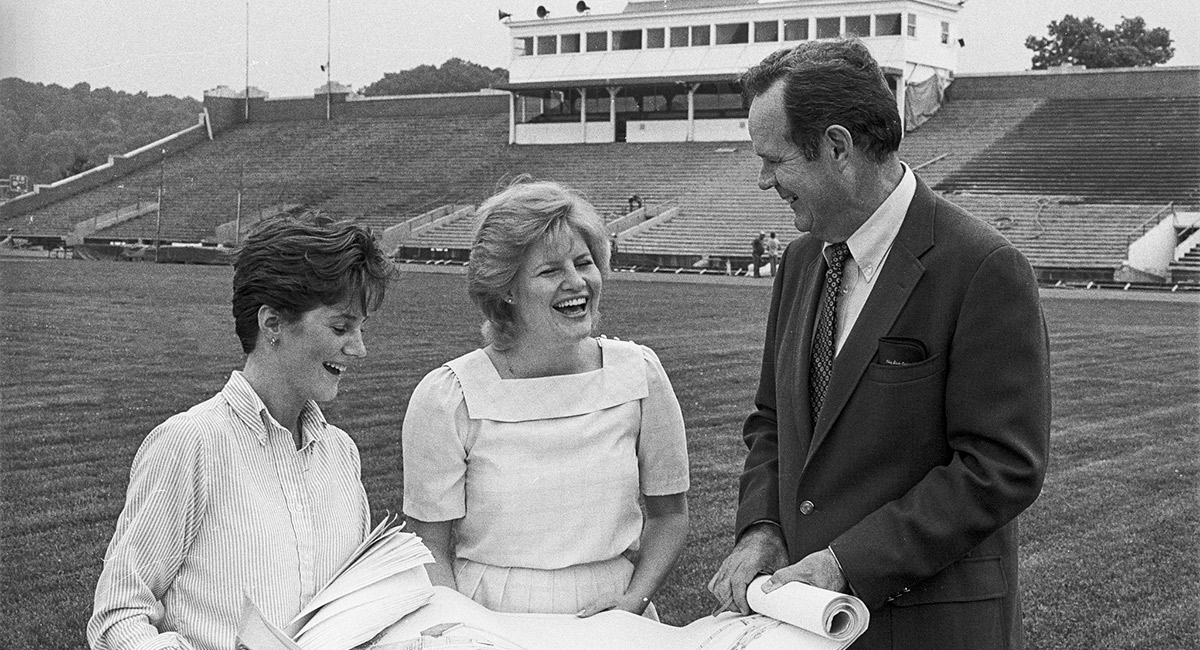Large universities are complex organizations, taking special skills to run competently while gaining the respect of the campus community. Having been around them since the 1950’s, and involved with many college presidents during over 20 years of writing extensively about higher education, I have encountered many great leaders. For example, Gordon Gee (West Virginia University) has completed 40 years running five important universities, and is witty, flamboyantly charismatic and a tremendous fund raiser. Mitch Daniels (Purdue) has been an extraordinary innovator while promoting academic efficiency. Paul LeBlanc (University of Southern New Hampshire) brilliantly foresaw the potential of on-line education. And there are others.
But the greatest campus leader I ever knew was a modest, humble man who did not crave enormous amounts of personal recognition, but who nonetheless superbly revived and enhanced an old school with a rich tradition, Ohio University. Charles J. Ping, Ohio U’s president from 1975 to 1994, died last week at age 91. When Ping joined Ohio University, it was at the nadir of its fortunes, having gone through a decline in enrollment in the early 1970s of over 30 percent and teetering financially and reputationally. Within a few years of his arrival, enrollment was steadily rising, ultimately beyond its previous peak, finances had dramatically improved, and campus morale had a dramatic turnaround, a faculty effort to unionize failing because of soaring confidence in the direction Ping was moving the university.
Here are eight keys to President Ping’s success.
- He led by example, showing humility, tolerance of diverse viewpoints, kindness, and loyalty—how many university presidents today run a university for nearly two decades? He passed up opportunities to move to bigger or more prestigious schools;
- He was an visionary, frequently talking of future university aspirations but always emphasizing core academic values related to creating and disseminating knowledge and building character;
- He assembled an exceedingly able team of senior administrators who worked well together and had long tenures;
- He was fiscally conservative, and unlike many presidents, assiduously avoided the Edifice Complex of borrowing huge sums to engage in grandiose building projects, while still maintaining and visually enhancing a nearly 200 year old beautiful campus;
- He reached out effectively to the broader university community, including alumni, political leaders, foundations, etc. He was massively successful at fund raising;
- He emphasized academic excellence, promoting a fine existing Honors Tutorial College and, with alumni support, creating a new Cutler Scholar program that shamelessly and successfully lured the best, brightest, and most virtuous students, many of whom could have attended first rate private schools;
- A former football coach and ordained minister, he appreciated the non-academic activities enhancing university life like intercollegiate athletics, fraternities, etc., but always was attentive of the need to curb occasional overexuberance that could threaten Job One, academic excellence;
- In a period of low enrollment, he grew to understand that sometimes turning students away (for being academically weak) was a way to gain more students (from an improved reputation) in the long run.
As President Ping’s chief fundraiser Jack Ellis put it, “Charlie was a great boss, an admired mentor...and a very dear friend.” Ping’s successor Robert Glidden added, “Charles Ping was a great man and a great president.... Charlie was the perfect gentleman.” A student Cutler Scholar who became extraordinarily successful, Matthew Denhart, said “President Ping changed my life...he sharpened my mind [and] inspired me to dream big and aim higher.”
Unfortunately, it is my sense that universities are seeing fewer Charles Ping-like presidents these days. The average tenure for them is now around five years, and the number staying at the same university for 40 or more years (which Ping did, teaching and promoting an institute in the humanities in his “retirement”) is near zero. Still rarer is the president like Ping who, perhaps given his philosophy background (Duke Ph.D), promoted the humanities and a coherent general education for students. Today’s presidents brag about how they promote students taking practical subjects to become more vocationally relevant. They tacitly accept if not actively promote a pro-sports agenda that at its worse denigrates higher learning, venerating brawn over brains. They use the university publicity apparatus to promote themselves instead of institutional advancement. Not Charlie Ping.
Charles Ping, Rest in Peace.












